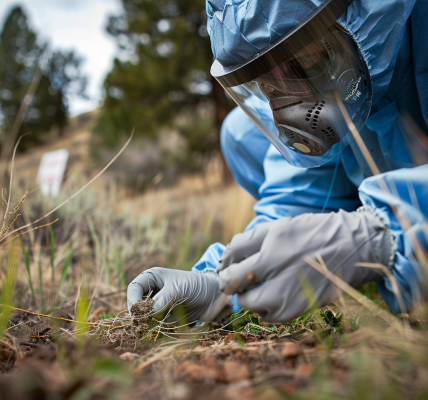Colorado has been hit by a concerning case of a deadly medieval disease, as health officials have confirmed that a resident has contracted the bacterial infection that causes the plague. This disease, known for its ominous nickname ‘black death’, can lead to severe symptoms such as coughing up blood and skin discoloration.
The method of transmission for this disease includes touching wild rodents and being bitten by infected fleas. In a recent incident, a Colorado native contracted the disease from their pet cat. The United States typically records only seven cases of plague each year, making it a relatively rare occurrence.
Symptoms of the plague can often mimic those of the flu, with manifestations such as sudden fever, chills, severe headaches, muscle aches, nausea, and vomiting. The disease is caused by the bacterium Yersinia pestis, which is carried by fleas and transmitted between animals.
If left untreated, the plague can progress to affect the lungs and other vital organs, potentially leading to fatal outcomes. However, thanks to advancements in modern medicine, particularly the use of antibiotics and improved hygiene practices, the plague is now a curable condition.
Individuals infected with the plague can be treated with antibiotics, especially if the treatment is initiated promptly after the onset of symptoms like fever. The disease can also be spread between individuals through respiratory droplets, emphasizing the importance of early detection and treatment.
While the exact source of the infection in Colorado remains unknown, previous research has identified the presence of the plague-causing bacteria in squirrels within the state. This underscores the importance of vigilance and preventive measures to mitigate the spread of the disease.





